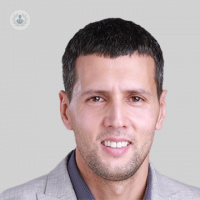Decoding autism
Written in association with:Autism Spectrum Disorder (ASD), commonly referred to as autism, is a developmental condition that affects how a person communicates, interacts, and experiences the world. It is termed a "spectrum" because the symptoms and severity can vary widely among individuals. People with autism may face challenges in social interactions, have repetitive behaviours, and exhibit intense interest in specific topics. These characteristics can present differently in each person, making autism a highly individualised condition.
Experienced consultant adult and adolescent psychiatrist Dr Aaron Lovelle decodes autism, providing the answers to your questions about the condition.

How is autism diagnosed?
Diagnosing autism typically involves a comprehensive assessment by a multidisciplinary team, including a psychiatrist, psychologist, and speech therapist. The evaluation process includes observing the individual's behaviour, obtaining a detailed developmental history, and using standardised diagnostic tools such as the autism diagnostic observation schedule (ADOS). Early signs of autism might include limited eye contact, delayed speech development, and difficulties in understanding social cues. Early diagnosis and intervention are crucial for providing the necessary support and improving outcomes.
What are the common symptoms of autism?
Individuals with autism may exhibit a range of symptoms. Common social communication difficulties include challenges in understanding body language, facial expressions, and tone of voice. They may also struggle to initiate or maintain conversations. Repetitive behaviours are another hallmark, such as hand-flapping, rocking, or insistence on following specific routines. Additionally, people with autism might have heightened sensitivity to sensory stimuli like loud noises, bright lights, or certain textures. Recognising these symptoms can help in seeking appropriate interventions and support.
What treatments are available for autism?
While there is no cure for autism, various interventions can significantly improve quality of life. Early intervention programmes focusing on behavioural therapies, such as applied behaviour analysis (ABA), have shown to be effective in enhancing communication, social skills, and adaptive behaviours. Speech and language therapy can assist with communication challenges, while occupational therapy can help with sensory integration and daily living skills. Medications might be prescribed to manage co-occurring conditions such as anxiety, depression, or hyperactivity.
How can families support a loved one with autism?
It is crucial that families support their loved ones who have autism. Educating themselves about the condition and understanding their loved one's specific needs and preferences is essential. Establishing consistent routines, using visual aids for communication, and providing a structured environment can be beneficial. It is also important for families to seek support from professionals and connect with local or online support groups to share experiences and resources. Encouraging social interactions and celebrating small achievements can make a significant difference in the well-being of an individual with autism.
What resources are available for further support?
Numerous resources are available for individuals with autism and their families. Local autism organisations often offer support services, educational programmes, and advocacy. National and international organisations such as the National Autistic Society (UK) provide comprehensive information, support networks, and guidance on navigating the challenges associated with autism. Additionally, healthcare providers can offer referrals to specialised services and professionals who can assist with tailored interventions and support plans.
Understanding autism and the available support systems can empower individuals and families to navigate this journey with confidence and hope. By fostering awareness and providing the necessary resources, we can create a more inclusive and supportive environment for everyone affected by autism.
If you would like to book a consultation with Dr Lovelle, do not hesitate to do so by visiting his Top Doctors profile today.


